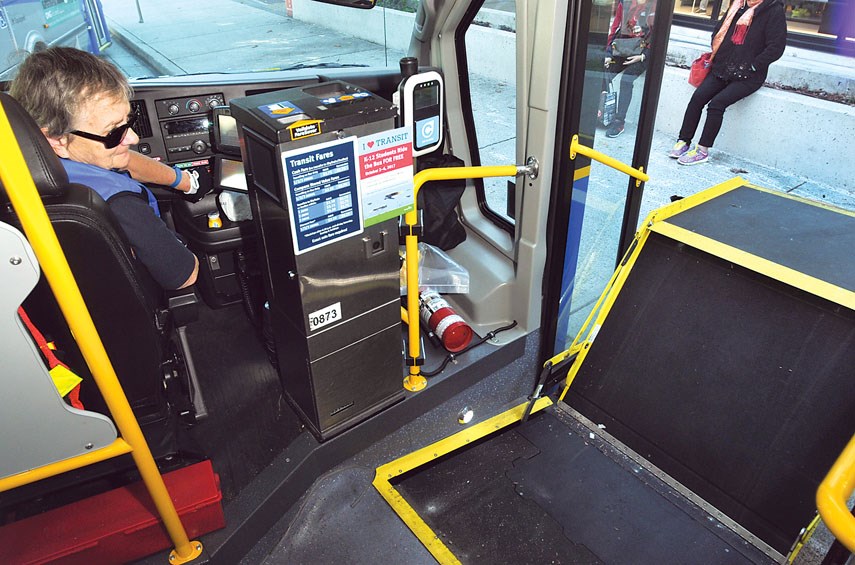Richmond residents using wheelchairs or scooters will need to plan ahead when taking a bus during COVID-19.
Community shuttle buses and highway coaches will no longer accept passengers using mobility devices, however, all other buses will still accommodate those riders, TransLink announced last week.
Bus operators will not be able to assist wheelchair customers in a “front-facing position” because of the physical distancing requirement from the B.C. health authorities, explained Jill Drews, spokesperson for TransLink.
“(But) those with mobility devices on buses that have a rear-facing accessible seat will be able to park in the designated area themselves,” said Drews, adding that this is the case for most buses in B.C.
If a customer using a wheelchair or scooter expects to take a coach or shuttle, they will need to travel with a companion who can assist them.
Drew added that bus drivers will call for a taxi if a person in a wheelchair or scooter cannot board the bus.
According to TransLink, it is difficult to say “which bus type will be on each route with enough reliability to guarantee assistance strapping in wouldn’t be required.”
TransLink moved to rear-door boarding for most passengers and removed bus fares on March 20.
This was in response to the COVID-19 outbreak to allow for physical distancing between passengers and drivers.



